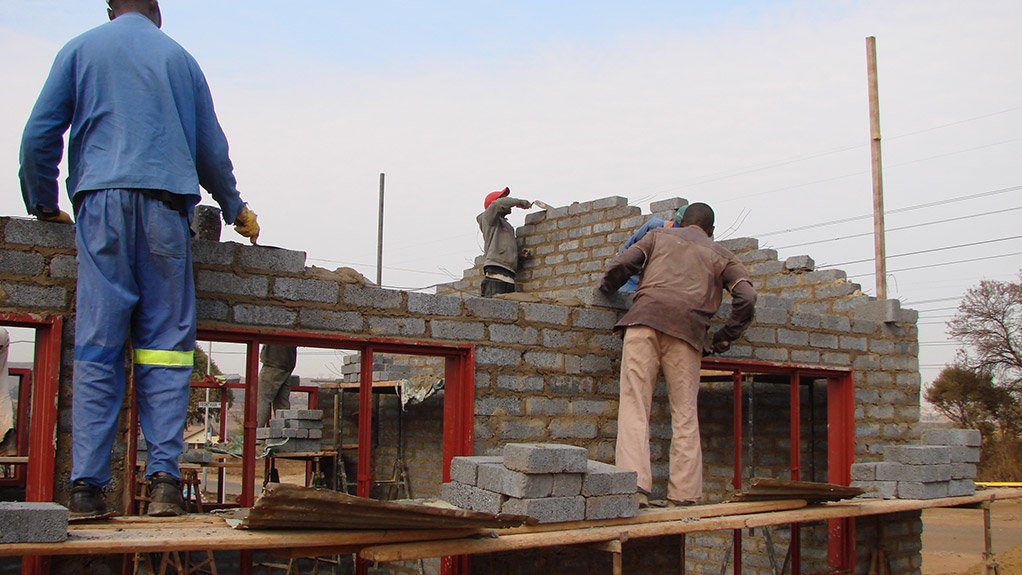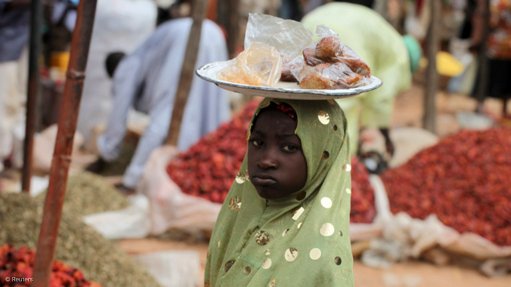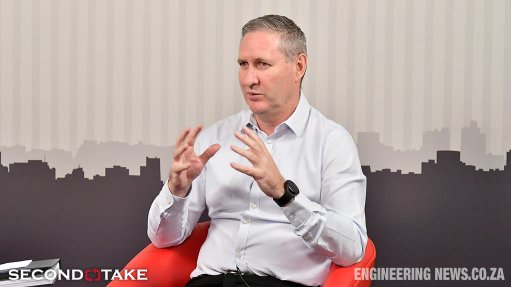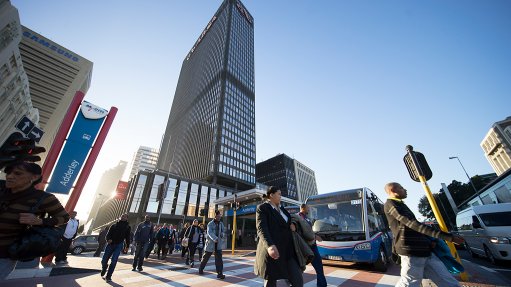Gauteng Partnership Fund bearing fruit



VINOLIA MASHIANE The Gauteng Partnership Fund is succeeding in unlocking private-sector funding for the low-cost housing market
LOW-COST HOUSING Funding for the low-cost housing market is limited, as most property developers regard this market as risky
The Gauteng Partnership Fund (GPF) is showing significant growth, with most of its funded entrepreneurs having had success in the market to date. The GPF was established in 2008 to leverage private-sector investment into the affordable housing market by assisting previously disadvantaged entrepreneurs in making inroads into the property development sector.
GPF chief investment officer Vinolia Mashiane tells Engineering News that, to date, there are 95 historically disadvantaged South African- (HDSA-) owned companies on its Entrepreneur Empowerment Property Fund (EEPF) programme, 36 of which have secured projects that are in different stages of development. During 2014, the GPF completed three projects under the fund and it expects two more to be completed by the financial year-end in March.
The GPF cofunds affordable housing projects with financial institutions, termed senior funders. The fund contributes up to 35% of the capital needed for projects, with the property entrepreneur contributing an equity percentage and the senior funder providing the remainder of the capital. The GPF receives its funding from the Gauteng Department of Human Settlements.
She adds that the fund’s four main programmes, the EEPF, the Student Accommodation Fund (SAF), the Social Housing Fund (SHF) and the Rental Housing Fund (RHF), have successfully reached out to property developers in the province, linking them to various funding institutions, such as banks. Since inception, projects funded by the GPF, together with its cofunding partners, have resulted in over 16 000 housing units being completed.
Mashiane explains that the GPF was first established to address the challenge of unlocking private-sector funding for the low-income market. “Our aim is to leverage private-sector funders – who traditionally associate the low-cost housing sector with low profit margins and high risk – and to make the investment attractive to them.
“With Gauteng being the economic hub of South Africa, there is a backlog in terms of housing, especially in the low-income bracket. This is largely because supply in this market is limited, as most property developers regard it as risky.”
Ongoing Programmes
The GPF’s EEPF programme was designed to promote the participation of companies owned by HDSAs in the affordable rental property market. The programme is limited to prospective participants invited yearly through public tender.
Mashiane highlights that, since its establishment in 2010, the EEPF programme has reached out to about a 95 property entrepreneurs, offering support, facilitating mentorship programmes between the entrepreneurs and established property development companies, and providing regular workshops on how to improve entrepreneurs’ exposure to the market.
“The ultimate aim of the EEPF is to ensure that these companies can raise funds on their own, enabling them to approach financial institutions to apply for funding and to meet the funders’ requirements, which are stricter than those of the GPF,” she says.
Mashiane adds that the GPF has had numerous successes, one of which is a client now in the process of constructing his second building in Kempton Park, after successfully completing his first project in the Pretoria inner city.
“We help entrepreneurs who never thought they would be able to participate in the property market and who now understand project feasibility and how to make projects successful,” she elaborates.
Last year, the GPF piloted the SAF programme, which was developed for student housing entities that require additional funding. The equity-type loan enhances a project’s debt-to-equity ratio to enable lenders to finance projects on favourable terms.
The programme has funded two student accommodation projects in Ga-Rankuwa to date. Mashiane states that the SAF is aiming to fund similar projects within walking distance of universities across Gauteng. The SAF programme funds projects that include inner-city residential refurbishments, the conversion of offices into residential units and greenfield developments.
The SHF was developed for social housing institutions that require concessionary funding for their projects to deliver housing to people earning between R3 500 and R7 500. The RHF caters for rental housing entities that require additional funding for their projects to deliver housing to people earning between R3 500 and R15 000.
Industry Challenges
Mashiane explains that the current economic environment is one of the biggest challenges facing the GPF. “When you deal with smaller-sized projects, an environment with a rising interest rate significantly affects the finan- cial feasibility of the projects,” she says.
To mitigate the situation, the GPF focuses on conducting thorough sensitivity analyses on the projects funded and evaluates possible changes to the interest rate to ensure a financially feasible project, Mashiane concludes.
Comments
Announcements
What's On
Subscribe to improve your user experience...
Option 1 (equivalent of R125 a month):
Receive a weekly copy of Creamer Media's Engineering News & Mining Weekly magazine
(print copy for those in South Africa and e-magazine for those outside of South Africa)
Receive daily email newsletters
Access to full search results
Access archive of magazine back copies
Access to Projects in Progress
Access to ONE Research Report of your choice in PDF format
Option 2 (equivalent of R375 a month):
All benefits from Option 1
PLUS
Access to Creamer Media's Research Channel Africa for ALL Research Reports, in PDF format, on various industrial and mining sectors
including Electricity; Water; Energy Transition; Hydrogen; Roads, Rail and Ports; Coal; Gold; Platinum; Battery Metals; etc.
Already a subscriber?
Forgotten your password?
Receive weekly copy of Creamer Media's Engineering News & Mining Weekly magazine (print copy for those in South Africa and e-magazine for those outside of South Africa)
➕
Recieve daily email newsletters
➕
Access to full search results
➕
Access archive of magazine back copies
➕
Access to Projects in Progress
➕
Access to ONE Research Report of your choice in PDF format
RESEARCH CHANNEL AFRICA
R4500 (equivalent of R375 a month)
SUBSCRIBEAll benefits from Option 1
➕
Access to Creamer Media's Research Channel Africa for ALL Research Reports on various industrial and mining sectors, in PDF format, including on:
Electricity
➕
Water
➕
Energy Transition
➕
Hydrogen
➕
Roads, Rail and Ports
➕
Coal
➕
Gold
➕
Platinum
➕
Battery Metals
➕
etc.
Receive all benefits from Option 1 or Option 2 delivered to numerous people at your company
➕
Multiple User names and Passwords for simultaneous log-ins
➕
Intranet integration access to all in your organisation




















